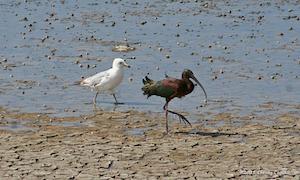The only time you run out of chances is when you stop taking them.
— Alexander Pope, born in 1688
Discuss "'Much sadness': Tax office in working-from-home court fight"
Report: USPS ‘Internet Covert Operations Program’ Is ‘Much Broader in Scope Than Previously Known’.
Most executives say they want more contract and temp workers. A majority of those workers say that’s not good enough. Business InsideR
A New Crop in Pennsylvania: Warehouses New York Times
Translating sites, search engines, social networks, browsers, ISPs, and other internet entities into geographic features, Martin Vargic has created a map of the internet circa 2021.
It includes several thousand of some of the most popular websites, represented as distinct “countries”, which are grouped together with others of similar type or category, forming dozens of distinct clusters, regions and continents that stretch throughout the map, such as “news sites”, “search engines”, “social networks”, “e-commerce”, “adult entertainment”, “file sharing”, “software companies” and so much more. In the center of it all can be found ISPs and web browsers, which form the core and backbone of the internet as we know it, while the far south is the domain of the mysterious “dark web”.
- “You cannot understand what science is, and therefore cannot really do philosophy of science, without understanding the extent to which science is embedded in culture” — a defense of ethnoscience from Justin E.H. Smith (Paris)
- Would you like to learn how to incorporate argument-mapping into your teaching? — there’s a free seminar on it coming up in June, sponsored by ThinkerAnalytix and Harvard’s Dept. of Philosophy
- A list of black studies texts philosophers should be reading — a list from Nicholas Whittaker (CUNY)
- If we’re interested in holding police accountable, we need to know what they should do. Medicine and public health provide some instructive analogies. — Brandon del Pozo (Miriam Hospital/Brown University) on how to improve policing
- Mommy-shaming and philosophy of science — Cailin O’Connor (UC Irvine) on “the use of scientific findings to promote unrealistic standards for modern parents”
- When does a philosophy Ph.D. go “stale”? — a discussion of some findings from Charles Lassiter (Gonzaga)
- Some infinities are bigger than others — a new animation tells the story of Hilbert’s Hotel
